Japan’s captivating Zen philosophy and revered tea culture come together in a harmonious audio guided tour that invites visitors to enjoy the country’s rich traditions. Exploring the nuanced Wabi-Sabi aesthetic at the heart of this experience, you will discover the art of the Japanese tea ceremony, known as Sado, and its meditative preparation of matcha. They’ll learn to appreciate the fleeting beauty of the present moment, captured in the concept of Ichigo Ichie, and uncover the profound significance hidden within the seemingly imperfect. This multisensory journey promises to leave a lasting impression, offering a unique window into the beauty and depth of Japanese cultural heritage.
Key Points
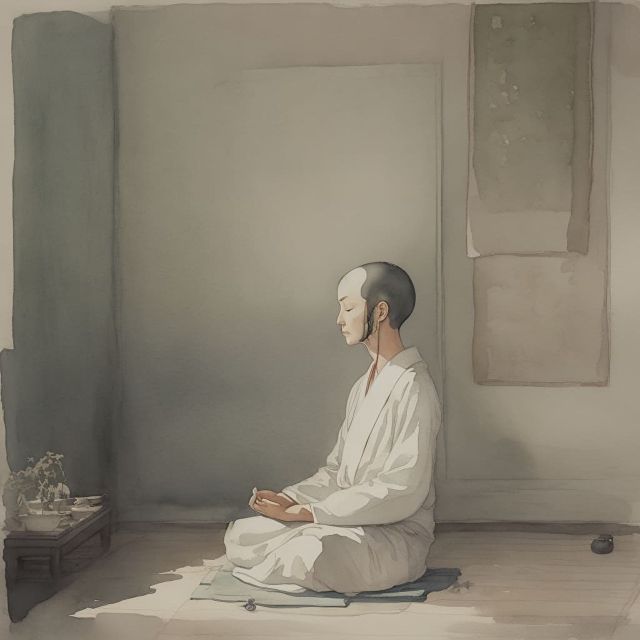
- Explore the intersection of Zen philosophy and the aesthetics of Japanese tea culture, including the concepts of Wabi-Sabi and Ichigo Ichie.
- Discover the intricacies of the Japanese tea ceremony (Sado) and its harmonious blend of artistry, ceremony, and reverence for the natural world.
- Appreciate the exquisite craftsmanship of tea utensils and the meditative experience of preparing and enjoying matcha tea.
- Gain insights into the Wabi-Sabi concept, which celebrates beauty in imperfection, impermanence, and the natural process of aging.
- Utilize the audio guide to enhance the immersive experience and learn about Zen and tea culture at one’s own pace.
Zen Philosophy and Aesthetics
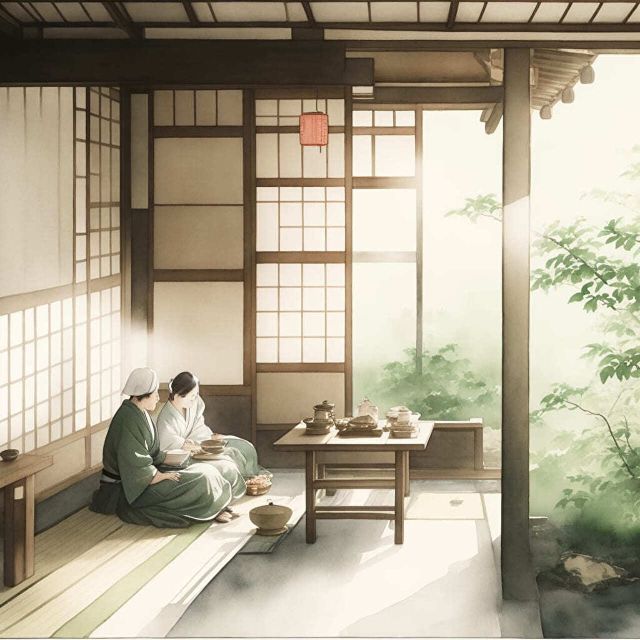
Zen philosophy underpins the aesthetic sensibilities that permeate Japanese tea culture, emphasizing mindfulness, simplicity, and the acceptance of imperfection.
The Zen concept of Wabi-Sabi celebrates the beauty in the fleeting, the imperfect, and the impermanent. This philosophy is manifested in the tea ceremony, where the utensils, presentation, and environment embody a rustic, natural charm.
The principle of Ichigo Ichie, or ‘one chance, one encounter,’ encourages participants to fully enjoy the present moment, mindfully appreciating the ephemeral nature of the tea experience.
Loving the local insights? Here are more guided experiences we recommend in Tokyo
Japanese Tea Culture Exploration
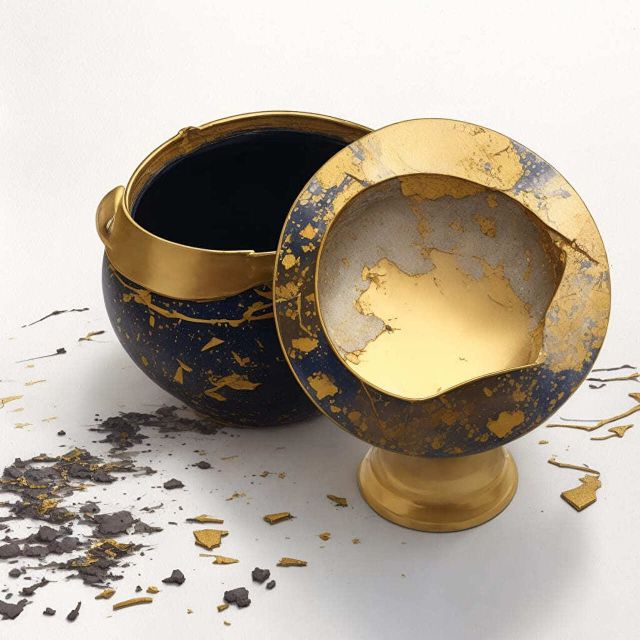
Exploring Japanese tea culture reveals a harmonious blend of artistry, ceremony, and reverence for the natural world.
The intricacies of the Japanese tea ceremony, known as Sado, seamlessly unite Zen philosophy and Wabi-Sabi aesthetics. Visitors will marvel at the exquisite craftsmanship of tea utensils, the meticulous preparation of matcha, and the serene ambiance of traditional tea rooms.
A key aspect of this experience is the concept of Ichigo Ichie, which emphasizes the appreciation of fleeting, unique moments. By immersing oneself in this captivating world, you can gain a deeper understanding of the profound connection between tea, mindfulness, and the beauty found in imperfection.
This audio tour offers a remarkable opportunity to explore the nuances of Japanese tea culture at one’s own pace.
Wabi-Sabi: Imperfect Beauty
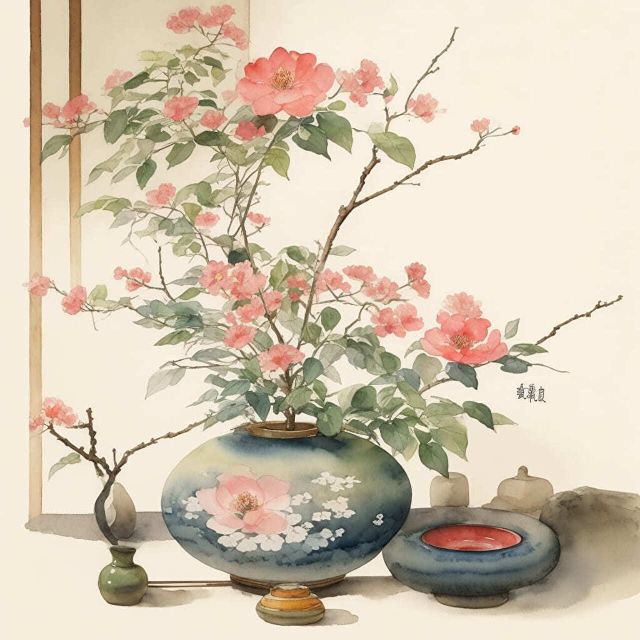
At the heart of Japanese tea culture lies the captivating concept of Wabi-Sabi, which celebrates the beauty found in imperfection and the transience of all things.
Wabi-Sabi encourages an appreciation for the inherent asymmetry, modesty, and simplicity in everyday objects. It embraces the natural process of aging, weathering, and wear, celebrating the unique character that emerges from these subtle imperfections.
Whether it’s the uneven glaze on a tea bowl or the asymmetrical design of a tea room, Wabi-Sabi invites the tea practitioner to find beauty in the flawed and the fleeting.
Sado: The Way of Tea
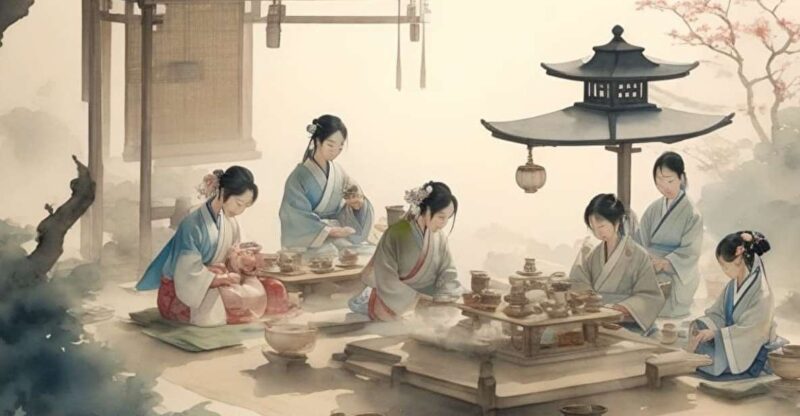
Deeply rooted in Japanese culture, the revered practice of Sado, or the Way of Tea, is a captivating fusion of art, philosophy, and ritual that has endured for centuries.
At the heart of Sado lies an appreciation for the fleeting beauty of the present moment, as embodied in the Zen concept of Ichigo Ichie. Through the meticulous preparation and presentation of matcha tea, practitioners cultivate mindfulness, graceful movements, and a deep connection to their surroundings.
The elegantly designed tea utensils and spaces further enhance this immersive experience, reflecting the Wabi-Sabi aesthetic that celebrates the inherent imperfections in life.
Ultimately, Sado invites participants to transcend the mundane and embrace the profound simplicity of the tea ceremony, unlocking a deeper understanding of Japanese culture and the Zen way of being.
More Great Thing To Do NearbyMatcha and Tea Utensils
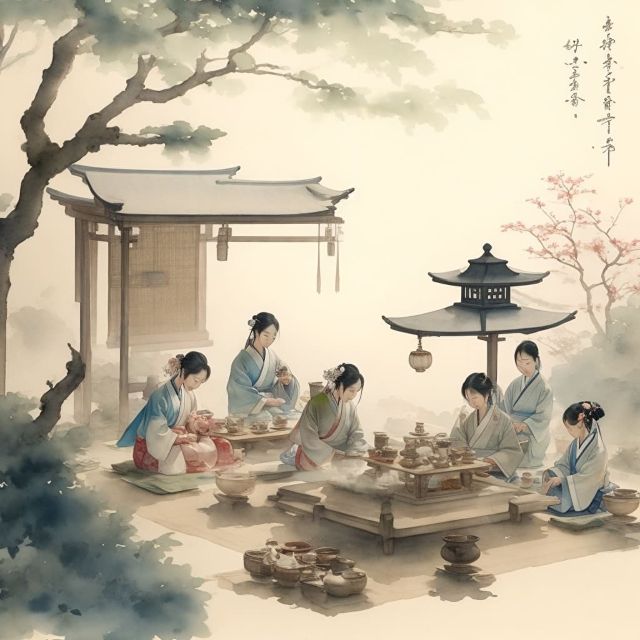
The meticulously crafted tea utensils and the preparation of matcha, the finely ground green tea powder, are integral components of the Sado, or the Way of Tea, that captivates practitioners and admirers alike.
From the delicate ceramic tea bowls to the elegant bamboo whisks, each item is selected and used with great care and mindfulness. The slow, methodical process of whisking the matcha into a frothy, emerald-green elixir is a meditative act, requiring focus and precision.
These elements of the tea ceremony embody the principles of Wabi-Sabi, celebrating the beauty in imperfection and the fleeting nature of the moment. Mastering the art of tea is a lifelong journey, one that invites participants to slow down, be present, and appreciate the simple elegance of the ritual.
Here are more great tours and experiences we've reviewed in Tokyo
Concept of Ichigo Ichie
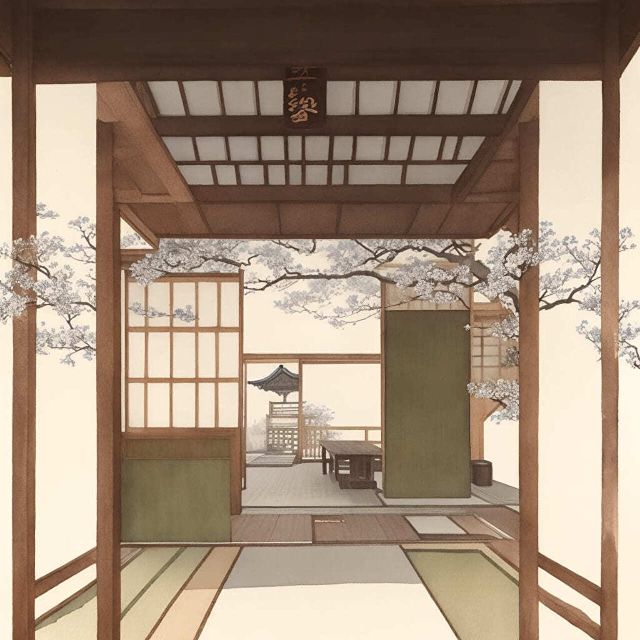
One of the profound concepts central to the Japanese tea ceremony is Ichigo Ichie, which encourages practitioners to fully enjoy the present moment, recognizing each encounter as a unique, irreplaceable experience.
The phrase literally translates to ‘one occasion, one meeting,’ emphasizing the fleeting nature of life and the importance of cherishing every moment.
In the context of the tea ceremony, Ichigo Ichie reminds participants to be fully attentive and engaged, savoring the sights, sounds, and sensations of the ritual as it unfolds.
This philosophy cultivates a deep appreciation for the impermanence of all things and inspires one to approach each experience with a sense of reverence and mindfulness.
Incorporating Wabi-Sabi Mindfulness
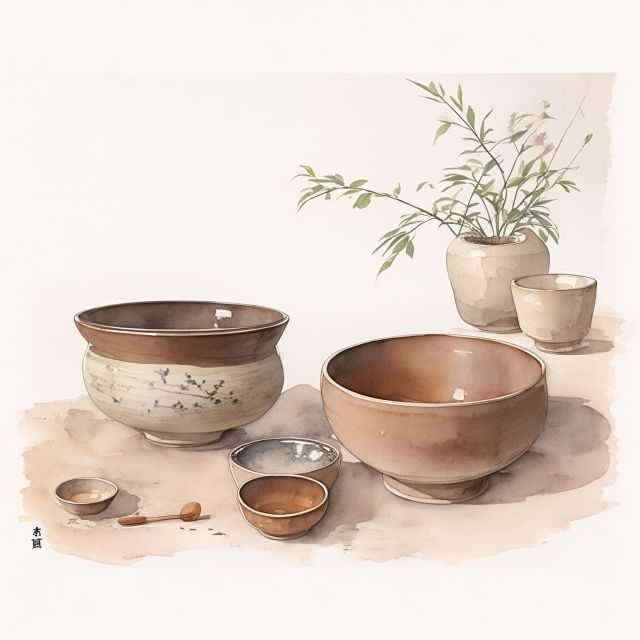
Embracing the essence of Wabi-Sabi can help one cultivate a more mindful and appreciative approach to everyday life.
By recognizing the inherent beauty in imperfection and impermanence, you can learn to find joy and contentment in the simple, fleeting moments that make up the human experience.
This philosophy encourages one to slow down, be present, and appreciate the natural cycles of growth and decay, rather than striving for perfection.
Incorporating Wabi-Sabi principles into daily routines, such as mindfully preparing and enjoying a cup of tea, can foster a greater sense of gratitude and connection.
Audio Guide Usage Tips
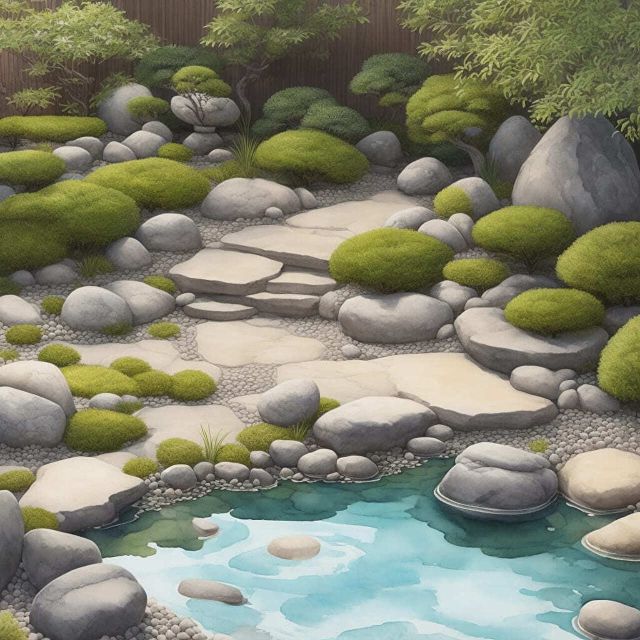
To make the most of the audio guide experience, users should download the guide before their visit to ensure smooth playback and avoid any connectivity issues. Connecting to a Wi-Fi network is recommended for faster download speeds, allowing users to seamlessly access the content at their convenience.
The audio guide is available through the Pokke app, which users can download to their smartphones. Once the guide is downloaded, they can listen to it at their own pace, whether they’re at home, on the go, or exploring the Zen and tea ceremony sites.
Frequently Asked Questions
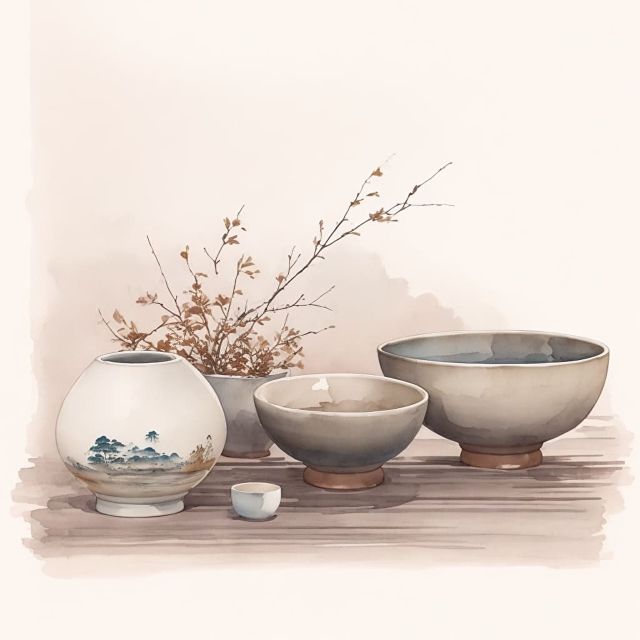
How Long Is the Total Audio Guide Duration?
The audio guide duration is 30 minutes, with 16 sections covering various points of interest related to Japanese tea culture, Zen philosophy, and Wabi-Sabi aesthetics, providing a rundown of the self-guided experience.
Can the Audio Guide Be Downloaded on Multiple Devices?
The audio guide can be downloaded on multiple devices. After purchasing it, the user will receive a download link that they can use to access the guide on their smartphone, tablet, or any other compatible device.
Is the Audio Guide Available in Other Languages?
The audio guide is currently only available in English. There’s no information provided about availability in other languages. Guests can download the guide onto their smartphone to listen to the content while exploring the destination.
Is There a Transcript of the Audio Guide Available?
A transcript of the audio guide is not currently available. The tour is offered only in English audio format. Customers can download the app and listen to the 30-minute guide on their smartphones for the self-guided experience.
The audio guide can’t be shared with family and friends, as it’s a single-user license. However, users can purchase additional copies to enjoy the experience together. The guide is designed for personal use only.
Recap
Immersing oneself in the captivating world of Japan’s Zen and tea culture allows visitors to appreciate the beauty of imperfection and the present moment.
The audio guided tour provides a comprehensive exploration of the interconnected philosophies, rituals, and artistry that define this time-honored tradition.
Listeners can discover the profound significance of Wabi-Sabi and Ichigo Ichie, and incorporate these mindful principles into their own lives.
You can check if your dates are available here:More Guided Tours in Tokyo
More Tours in Tokyo
- Tokyo: Shinjuku Local Bar Hopping Tour 3 Authentic Izakayas
- Tokyo Tsukiji Fish Market Food and Walking Tour
- Tokyo by Night Photography Tour
- 3hr Private E-Bike Cycling Tour in Tokyo, Starting at Your Hotel
- Tokyo Private Driving Tour by Car/Van – English Speaking Driver
- Customizable Private Tour in Mt. Fuji With Private Driver
More Tour Reviews in Tokyo
- Tokyo: Shinobi Samurai Premium EXP for Solo Travelers, 90min
- Mt Fuji Private Tour With English Speaking Driver
- Nerikiri Wagashi-Making With Tea Ceremony Review
- Tokyo 3-Hour Guided E-bike Cycling Tour of the Citys Hidden Gems
- Official Street Go-Kart Tour – Shinagawa Shop
- 【Open 1st Anniv.】Popular Sushi Making Class Near Tokyo Tower
Not for you? Here's more things to do in Tokyo we have recnetly reviewed
- 2 Best Craft Beer Tours And Tastings In Tokyo
- 20 Best 2 Day Tours In Tokyo
- 7 Best 3 Day Tours In Tokyo
- 6 Best 4 Day Tours In Tokyo
- 25 Best Cruises And Boat Tours In Tokyo
- 25 Best Food Tours In Tokyo
- 20 Best Full-Day Tours In Tokyo
- 15 Best Helicopter Flights And Tours In Tokyo
- 2 Best BBQ Experiences In Tokyo
- 5 Best Coffee Tours And Tastings In Tokyo
- 25 Best Lunch Experiences In Tokyo
- 12 Best Massage And Relaxation Services In Tokyo
